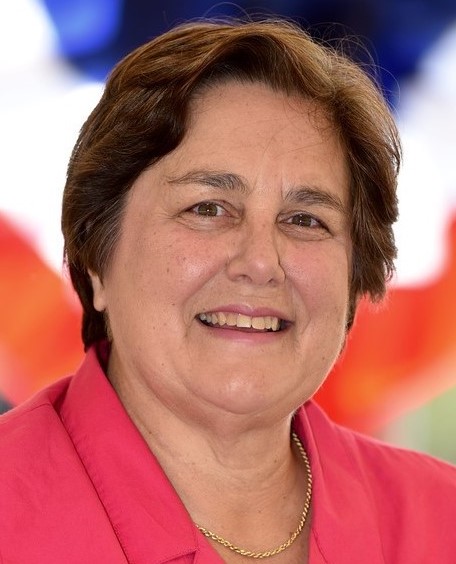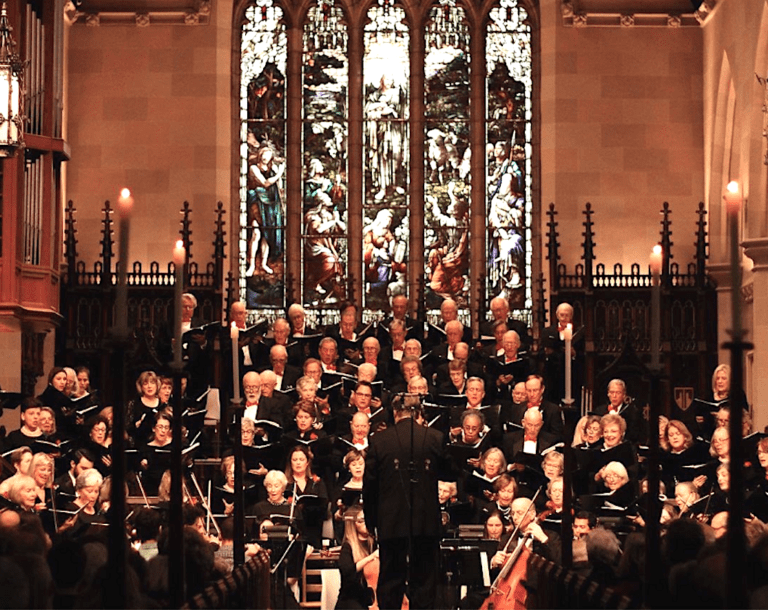COLUMN | by Karen Fassultiotis
 Karen Fassuliotis was the recipient of the Robert G. Krause Pro Bono award from the Greenwich Probate Court at the Law Day celebration hosted by the Greenwich Bar Association last week and this is the acceptance speech she gave which we are honored to publish and sums up well what Law Day means.
Karen Fassuliotis was the recipient of the Robert G. Krause Pro Bono award from the Greenwich Probate Court at the Law Day celebration hosted by the Greenwich Bar Association last week and this is the acceptance speech she gave which we are honored to publish and sums up well what Law Day means.
I want to thank Judge Hopper and the Greenwich Probate Court team – our chief clerk Cindy, and the rest of the Greenwich probate court, which is second to none in our state – Jamela, Regina, Cheryl and Ashley. They all deserve a standing ovation for the work they do. The Robert G. Krause Probate Pro Bono Award is great honor and I know that the other attorneys who volunteer their time are equally deserving of this award.
Pro bono comes from the word pro bono publico – which means for the public good. Which of course fits in to this year’s Law Day theme of civics, civility and collaboration. Without a doubt, pro bono work involves all three. So, to begin, I’d like to walk you through how most of my pro bono work begins.
My phone rings. My caller ID tells me it is the Probate Court.
Now there are only two reasons that the Probate Court calls me – the first is to remind me that I am late on an attorney letter for a conserved person that I represent. The second, and the one that occurs more often, is that the court needs an attorney to represent either a person in a conservation hearing or an individual who is in the hospital on a psychiatric hold at a probable cause hearing for commitment to a mental health facility.
So now I have a choice – answer the phone and do my civic duty or simply ignore it.
Of course, I don’t ignore it – and Cindy or Regina have reeled me in for another pro bono case.
And just so you know – unlike all of you lawyers in the room, I haven’t learned yet to be out of town when the moon is full – yes, it’s true, ask any ER professional – behavioral cases blossom when it’s a full moon.
I am often asked why I do pro bono work. Put simply – it’s my civic duty. I firmly believe that everyone is equal under the law and is entitled to representation whether they can afford it or not. In all the pro bono cases I’ve been asked to do Judge Hopper is being asked to curtail someone’s freedom in some way. In the case of the conserved person, most of the time it’s a stranger who is now involved in their life and who may be making decisions they use to make. In the case the probable cause hearing the outcome if the ruling is against your client is a transfer to a psychiatric or behavioral unit in a hospital for up to 15 days.
And that’s where the second prong of this year’s Law Day is in play – civility. Many times, I am dealing with clients who have an underlying issue such as dementia, paranoia or other psychiatric illness, or drug addiction. In the extreme case I have had to make the decision, with the conservator, to literally allow a person to pass away, rather than maintain them on life support. It is true when they say we are often asked to make life and death decisions.
And sometimes my success in representing a client is some family member’s sorrow. In the case of the probable cause hearing a person is in the behavioral unit of the hospital either suffers from some sort of mental challenge or drug addiction. They often come in because they have threatened suicide, have behaved erratically and the police were called, or are on drugs or alcohol.
My job is to respect each individual, no matter how hard that may be, to build trust between us and to collaborate with them on how I will approach their case.
Which brings me to the second reason I do what I do and to answer the question of how I can represent people who would often benefit from being hospitalized or in rehab? For myself it is sometimes an internal struggle. Because my family has known, first hand, the trials and tribulations of mental illness. Full disclosure, my oldest nephew is bipolar with schizoid tendencies and I have seen the sorrow that mental illness brings, as well as the joy when there is a breakthrough in treatment. But I also know that if it were my nephew in this situation, he should be afforded legal representation.
Because, we have a legal standard – whether it is a conservation hearing or a probable cause hearing, the individual must be a threat to themselves or others. And if that legal standard is not met, or if it’s grey, then watch out – I will be a piranha in my representation of my client, often with a positive result for them.
Of course, sometimes civility doesn’t work – like the time a drug-addict client, who happened to be Greek, kept insisting that he wasn’t a drug addict. Now, in case you didn’t know it, I’m Greek. After the third time he said it to me I finally responded in exasperation, φίλε, παίρνεις μεθαδόνη. Είσαι τοξικομανής. Which, loosely translated means – dude, you’re on methadone. You’re a drug addict. Well, that got his attention.
I’d like to end with a few stories that are representative of the cases I am given. Recently I was called to represent a woman who was brought to the hospital in a manic state. After a hearing (she did not meet the standard of a threat to herself or others or gravely ill at the time of her hearing) she was released by Judge Hopper. Well, word got around the behavioral unit that there was this lawyer who got people out. So, guess what – two days later my telephone rang again – it was Cindy who said a person wanted the lawyer who got people out. This time it was the Greek guy I just mentioned He was there because he threatened to kill himself in order to get a warm place to sleep in the hospital. It sorta backfired on him and he found himself on the wrong end of a probable cause hearing. After the hearing, Judge Hopper released him because, again, he did not meet the legal criteria for hospital commitment. Which then led to a third call, this time from Regina, another person also wanted the same lawyer that got people off. She was in the hospital after taking PCP – she was self-medicating with drugs and alcohol to forget trauma, which included horrific events, including a child’s death at another’s hand. After a hearing, Judge Hopper denied the petition since the legal standard was not met. I think I emptied the hospital’s behavioral unit that week! I tell you these stories not to pat myself on the back or because I was successful in getting my clients released, but because each and every one of these folks are people who either made choices that were bad, had bad things happen to them, or had some disease. And whether paid or not they deserve to be represented. We are all equal under the law. This is why I do what I do.
I will end by again pleading as I have every time I’ve gotten this award – that all the lawyers in this room join the pro bono crusade, especially with our probate court who is always looking for good attorneys. You will be living the theme of this year’s law day of civics, civility, and collaboration every time you volunteer. And it will be one less case I will have to take on!
Karen Fassuliotis is a 50+ year Greenwich resident, a Greenwich High School graduate, with a BA in Biology from New York University, a MS and PhD from St. John’s University and a law degree from Pace Law School. She is a current member of the Board of Estimate and Taxation.




